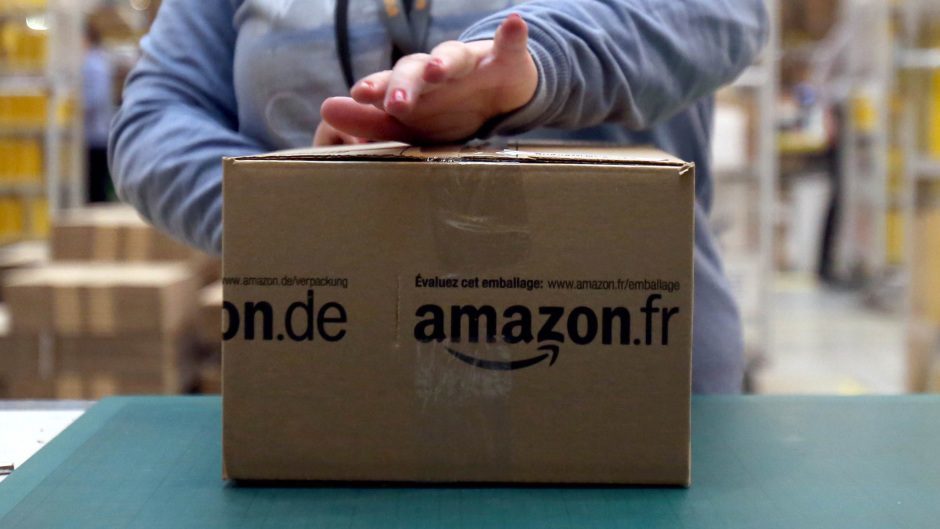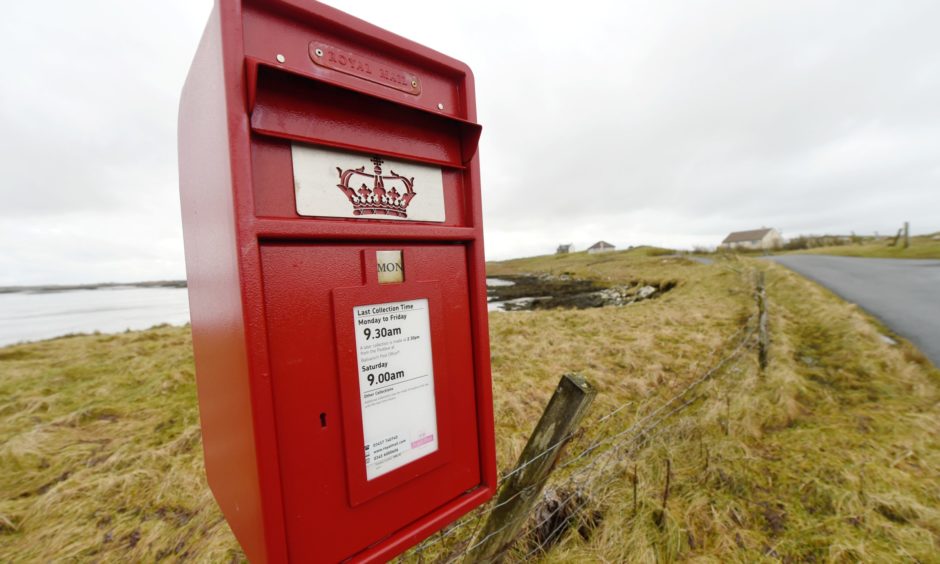The other day a constituent came to see me about a teensy little parcel containing two little batteries that he nearly ordered online.
When he saw it was going to cost him £10.95 for it to be delivered to the Highlands, as opposed to £4.95 for the rest of the UK, he quite understandably decided not to place the order.
Oh boy, aren’t we sick of all this!
Resolver – an organisation which looks at the problems upper most in the public’s mind – confirmed to me that in the UK, delivery charge rip-offs are the second biggest irritation people complain about – second only to online shopping.
We’ve all done it, click click – “ooh I fancy that – nice shoes – that would be useful in the kitchen”; what with the pandemic, ordering online is a real boon.

That is until you look at the small print and smell a very much deceased rat when you see the cost of delivery to where we, readers of this newspaper, actually live.
It wasn’t always like this. As long ago as January 9 1840 the ‘Penny Post’ was introduced. This world-beating innovation meant that a letter arrived anywhere in the UK from the Shetland Islands to Cornwall via Kinlochbervie and London for precisely one penny.
No one was disadvantaged because of where they lived. Wonderfully, it was the same for a parcel. Okay, a heavier one cost more than a light one, but it didn’t matter where it was coming from or going to. It was a flat and fair rate.
Now my constituent’s batteries are the perfect example of an unfair extra charge being levied on people simply because of where they live.
How very different from the high-minded ethos that led our Victorian forbears introducing the ‘Penny Post’. Quite simply the present situation stinks and I am sick and tired of going on about it.

There is far too much buck-passing when it comes to this. The Scottish Government says that delivery charges are a matter reserved for Westminster and while it is very regrettable, and while they wave a finger or two about it, the fact is that it is indeed up to Westminster to sort it out.
But then at the drop of a postman’s hat, Westminster is only too keen to burble on about market forces and how really it’s up to the Scottish Government to improve transport links and reduce the price of getting stuff from A to B.
There’s some truth to that as well! But it does make you wonder: how the hell they ever did it in 1840, long before the present transport infrastructure that we have today was in place. But do it they did.
Amidst the buck-passing, we are still where we are today. Whopping great charges that people cannot afford, particularly during the present COVID pandemic, when we rely heavily on online orders.
So what is to be done?
Both Governments want to extract various digits, as the late Duke of Edinburgh might have said, and get together, stop bickering about the union and who does what, and just sort the ruddy problem out.
Secondly they must sort out our roads and properly invest in our transport infrastructure. This in turn leads me into another suggestion: local delivery firms in the Highlands are up and down our roads all the time – they know where the bad potholes are, and they also know where a particular Mrs Mackay lives in Sutherland.
Legislation must be put in place obliging companies not using the Royal Mail for delivery to use local firms. The national firms have a worryingly high level of wrong or lost deliveries and going local will help solve this problem.
📣 @Jamie4North Highlanders pay the most absurd delivery surcharge prices – and often, they only find out till after they have made their purchase thanks to some of the dodgy advertising compliance we see by online retailers in particular. https://t.co/5nhZ5K8IYW
— Scottish Lib Dems (@scotlibdems) June 8, 2021
Finally this: the Royal Mail has a public service obligation – by law – and I believe that the law of the land should be changed so that the same standard of service is forced upon all other delivery companies and the firms that seek to use them.
“£10.95 for a delivery of two batteries? You have to be joking!”. This is what I said in a debate, in my own name, in the House of Commons this week.
It’s not the first time I’ve gone on the record about this issue, but I sincerely hope that one day, as soon as possible, we will see deeply unfair delivery surcharges confined to the dustbin of history.
